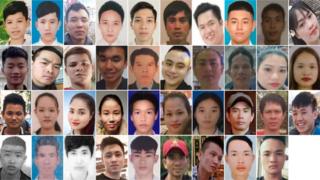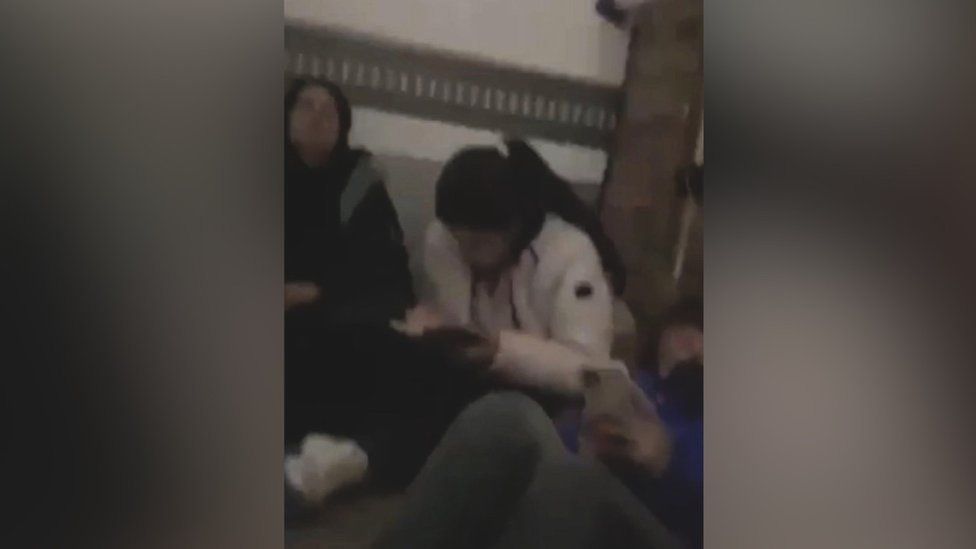
Six suspected migrants have been rescued from the back of a lorry in France, after the BBC helped track them down and alert the police.
The four Vietnamese women and two Iraqi women were trapped inside, panicking and struggling to breathe. One of them spoke to the BBC from inside the lorry.
The BBC then helped to contact the police, who stopped the truck.
French police have arrested the driver and now opened an investigation into a suspected illegal immigration ring.
Here’s the story of what happened.
At around midday on Wednesday, my phone screen lit up. It was a message that read: “There are some people who crossed the border from France to England in a refrigerated van.”
Before I could finish reading the message, a call came in.
“Are you in Europe? Please help, it’s urgent,” a panicked voice rang out.
I was cold all over. The tragic story of 39 Vietnamese migrants found dead after suffocating in a lorry trailer back in 2019 in Essex was still fresh in my mind.
I didn’t know who the caller was, but believed he knew me from when I covered the Essex lorry deaths, as a lot of Vietnamese people approached me that time.
I asked the caller a few questions, but quickly became frustrated at not being able to get the information I needed.
This is what I learnt – there was a group of about six people hiding in the lorry, its license plate number was unknown, as was its location and the direction it was heading in.
All I knew at this point, from what the caller had told me, was that the vehicle was in France, but seemed to have turned around and was no longer going towards its original destination – the border to England.
I was told the six women were in the trunk of the lorry and that the air conditioning started to turn on. Those inside were very cold and were panicking.
But they were still able to contact the outside world, and the caller put one of them in touch with me.
“It’s so cold, it [the cooler] keeps blowing,” a girl texted me from the truck, which was carrying bananas. She said the truck was sealed with an iron bar.
She also sent me two short videos showing the scene inside.
One video showed a dark compartment, and stacked up to the roof were cardboard boxes containing fruit, leaving only a few dozen centimetres of space for them to sit on the floor. There was a cough, and a young female voice said in fluent English: “I can’t breathe.”
The girl told me they got in the lorry at around 00:30 the night before. They had since spent more than 10 hours in there and started to feel uneasy when their location data on their phone showed that the truck had changed direction.
Without much time to think, I contacted colleagues from BBC News and reporters living in France. At the same time, a reporter for the French newspaper Le Monde in London was also informed and he immediately alerted his colleague at the Paris editorial office that specialised in immigration.
Tracking the truck
The girl was able to share her live GPS location with me, from which I saw the truck was on the E15 highway, near Drace, north of Dijon.
Then, I asked a colleague in France to help contact the closest police station to the truck, and they were able to get in touch with them and send over the details we had.
The girl was unable to make calls from inside the lorry. It’s not clear to me why not, but it may have been down to the type of Sim card she was using.
We gathered all the information we needed, and continuously sent vehicle location updates to Pham Cao Phong, a freelance journalist in Paris, as well as the BBC News team in Europe and French police.
All of a sudden, location sharing was interrupted – I had lost the truck.
But, the girl was still able to text me. She told me the air conditioner was turned off – and it was getting hard to breathe.
“We’re so suffocated,” she wrote.
Stuck in the narrow space I saw in the short video clip, I feared they wouldn’t have much time to hold out.
I tried to reassure them, telling them to keep calm, to try not to talk to save air, and that the police would come very quickly.
I nervously looked at the computer screen and then my phone, waiting for news.
Police intercept
After talking for a while, I found out that before getting into the truck, three of the girl’s companions decided not to come with her. I’m not sure why they made that decision, but they did take a photo of the truck’s license plate number.
The photo showed it had Irish licence plates, and on my phone I was able to see its location again.
French police in the Rhone region told us they had determined the vehicle’s location and had intercepted it.
I texted her, but I don’t think she read my messages – the police must have arrived and confiscated her phone.
The four Vietnamese people say they got in the lorry with the promise of being taken safely to England.
As for me, I felt relief knowing that they were now safe in France. They are safe, I told myself, that’s the most important thing.
At about 17:00 local time (16:00 BST), French prosecutor Leatitia Francart in Villefrance sur Saone reported that the vehicle turned out to be from Lithuania and that the driver was under investigation.
Ms Francart added that four young women were Vietnamese, one of them a minor, and the other two women were from Iraq.
Why, after the tragedy of 39 deaths in Essex in 2019, are there still young girls from Vietnam getting into the back of a truck to cross the border? I can’t find any definitive answer.
Additional reporting by Mattea Bubalo.
Related Topics
-
-
24 October 2019
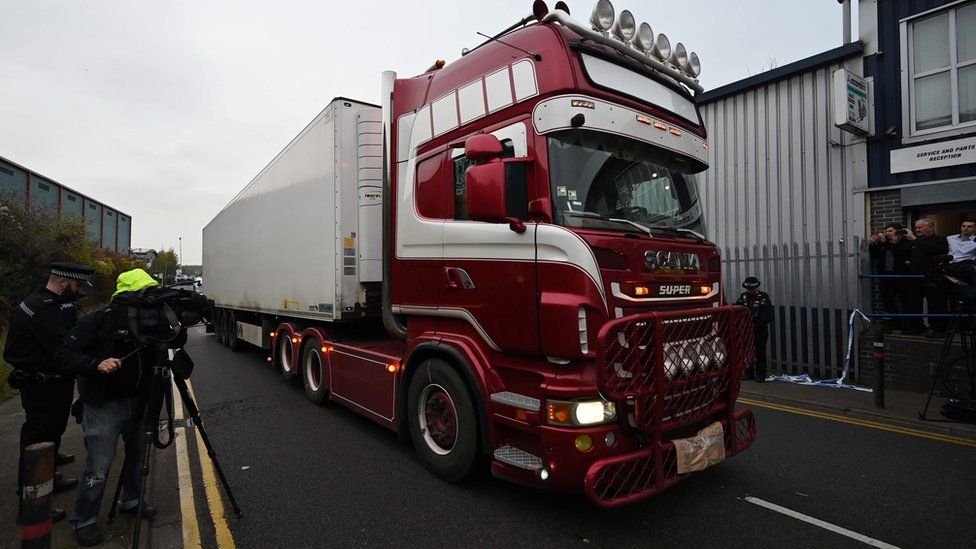
-
-
-
23 November 2021
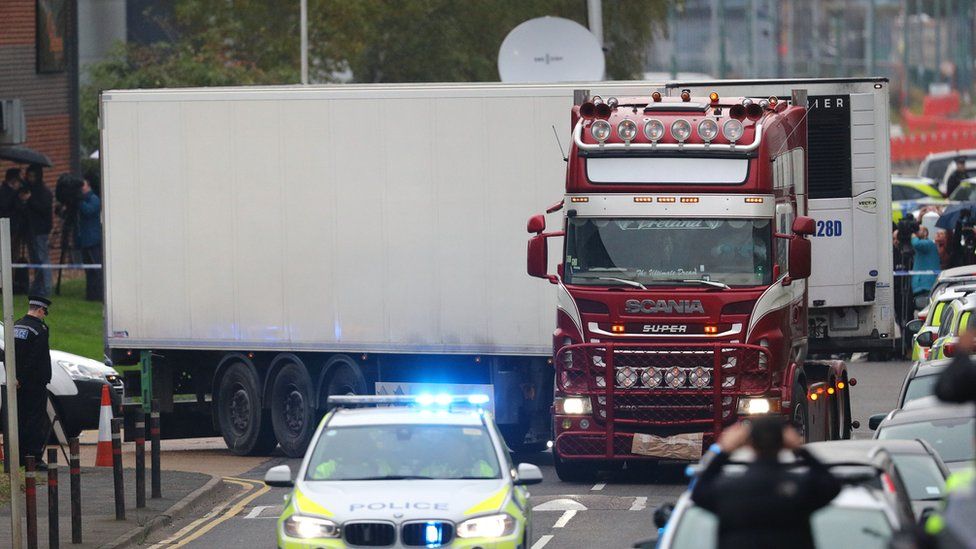
-
-
-
8 November 2019
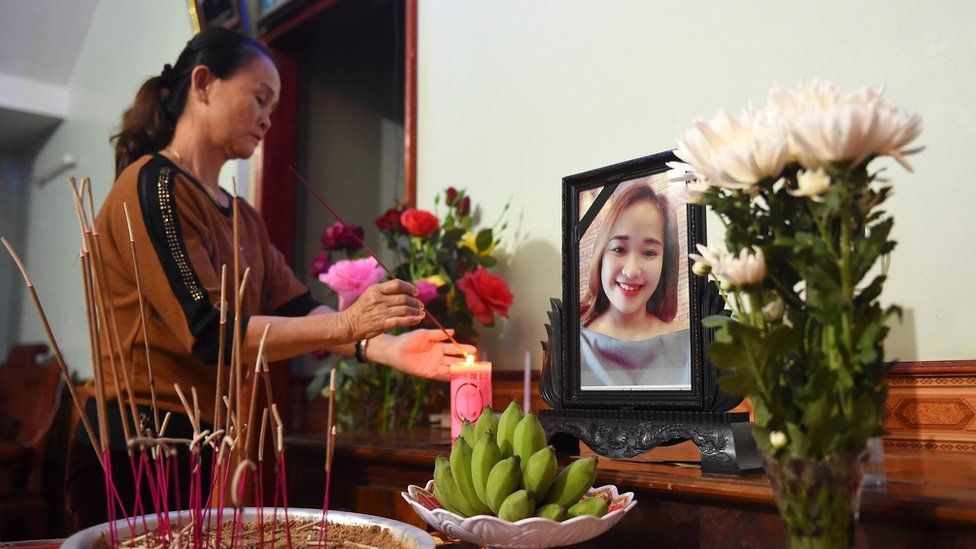
-
-
-
21 December 2020
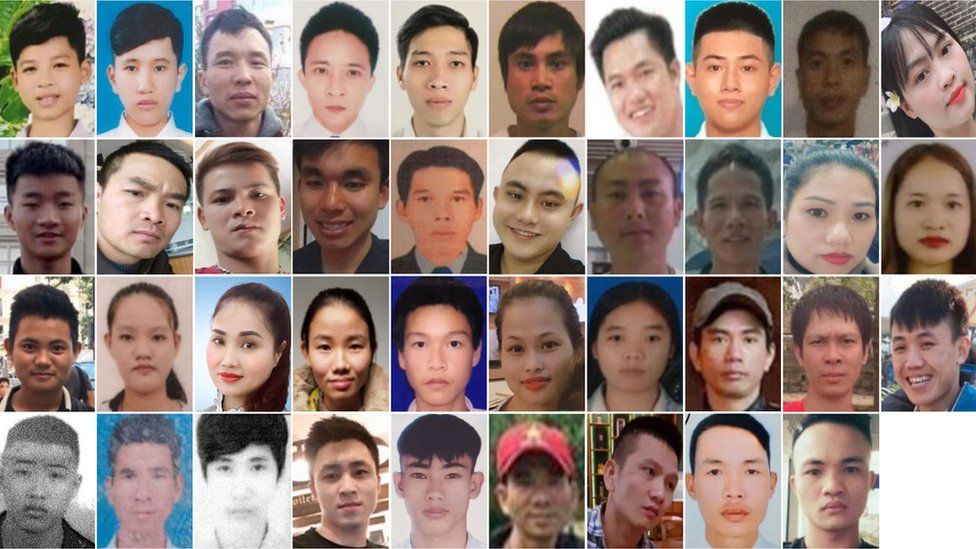
-

